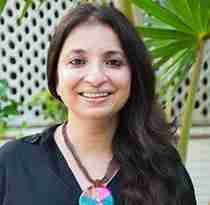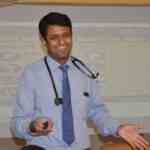There Are Ways Of Improving Your Memory As You Age. We List Down Some
Dr Naganath Narasimhan Prem, Chief Consultant, Geriatric Medicine at Jaslok Hospital, Mumbai throws light on the various ways by which you can improve your memory.
Dementia cannot really be prevented but it can be controlled by putting extensive effort in improving one’s memory as one ages, believes Dr Naganath Narasimhan Prem, Chief Consultant, Geriatric Medicine at Jaslok Hospital, Mumbai. Observing World Alzheimer’s Month, Dr Prem takes us through the various ways by which one can enhance their memory.
These include keeping the brain active and giving it adequate work-out, keeping the body active and engaging in daily physical exercise, having adequate sleep, eating the right foods, committing time for friends and nurturing relationships, trying out ways of reducing stress, laughing out loud, taking good care of one’s general health and resorting to practical ways of boosting memory. Read his guidance below.
Physical activities
Certain kinds of physical activities may work wonders in enhancing one’s memory. Here are some suggestions:
- Aerobic exercise is good for the brain. Choose activities that help in pumping blood.
- Do not skip your daily morning exercise.
- Physical activities that require hand-eye coordination or complex motor skills are particularly beneficial for brain building.
- Exercise including short walks can help in overcoming mental fatigue.
- Activities like cycling and gardening.
Brain game and social engagement: How do they work on memory?
Brain games play a vital role in practicing memory improvement among older adults. “Brain games are defined as any activity that stimulates your thinking. It may include word puzzles like Crossword and Scrabble, traditional games like Chess, Sudoku, and Bridge. It also includes creative outlets like painting, playing an instrument, or learning a new language,” explains Dr Prem.
Interestingly, it has been observed that brain games help sharpen thinking skills that tend to wane with age, such as processing speed, planning skills, reaction time, decision making, and short-term memory.
He adds: “Having meaningful friendships and a strong support system is vital not only to emotional health but also to brain health. Having groups with similar passions such as volunteering, crafts, and singing help.”
Memory boosting diet
An appropriate diet can help in enhancing memory among older adults and slow down cognitive decline. Here are some of the foods that may help:
- A diet rich in Omega 3 fatty acids is essentially good for your memory. Fish happens to be a particularly rich source of Omega-3 and is considered to be a potent memory-booster.
- If vegetarian, opt for a diet rich in spinach, broccoli, kidney beans, soybean and pumpkin seeds as these are good food for your memory.
- Eat more fruits and vegetables.
- Drink green tea as it is good for your brain.
- Watch out these risk factors that may lead to poor memory among older adults.
“Several other conditions could result in decreasing memory and eventual cognitive impairment among older adults. These include heart disease and its risk factors, hypertension, Diabetes Mellitus, multiple medications, hormonal imbalances like hypothyroidism, history of depression, abnormal sleep and obstructive sleep apnoea (OSA),” says Dr Prem.
Symptoms of Mild Cognitive Impairment (MCI)
Frequently losing or misplacing things
Frequently forgetting conversations, appointments, or events
Difficulty remembering the names of new acquaintances
Difficulty following the flow of a conversation
When to see a doctor for memory loss?
“When memory lapses become frequent enough or sufficiently noticeable to concern you or a family member, you must make an appointment as soon as possible to talk with your doctor and have a thorough physical examination. Even if you are not displaying all the necessary symptoms to indicate dementia, it may be a good time to take steps to prevent a small problem from becoming a larger one,” says Dr Prem who believes living a socially and physically active and engaged life and eating the right food can help enhance memory.
Comments

H Janardana Iyer
25 Sep, 2020
Very informative and helpful.
You may like to read:

Health and wellness
Five Lifestyle Changes To Ease Bladder Control

jessica smith
5 mins read

Health and wellness
Five things to keep in mind when considering organ donation

sunayana singh, ceo of organ india, an initiative of the parashar foundation
3 mins read

Health and wellness
How NURA Uses AI-Enabled Screening to make a difference in Preventive Healthcare

Silver Talkies
4 mins read



Post a comment